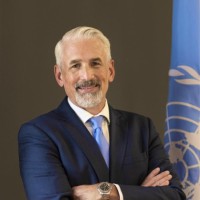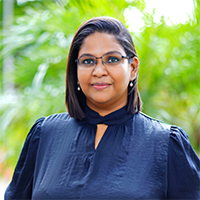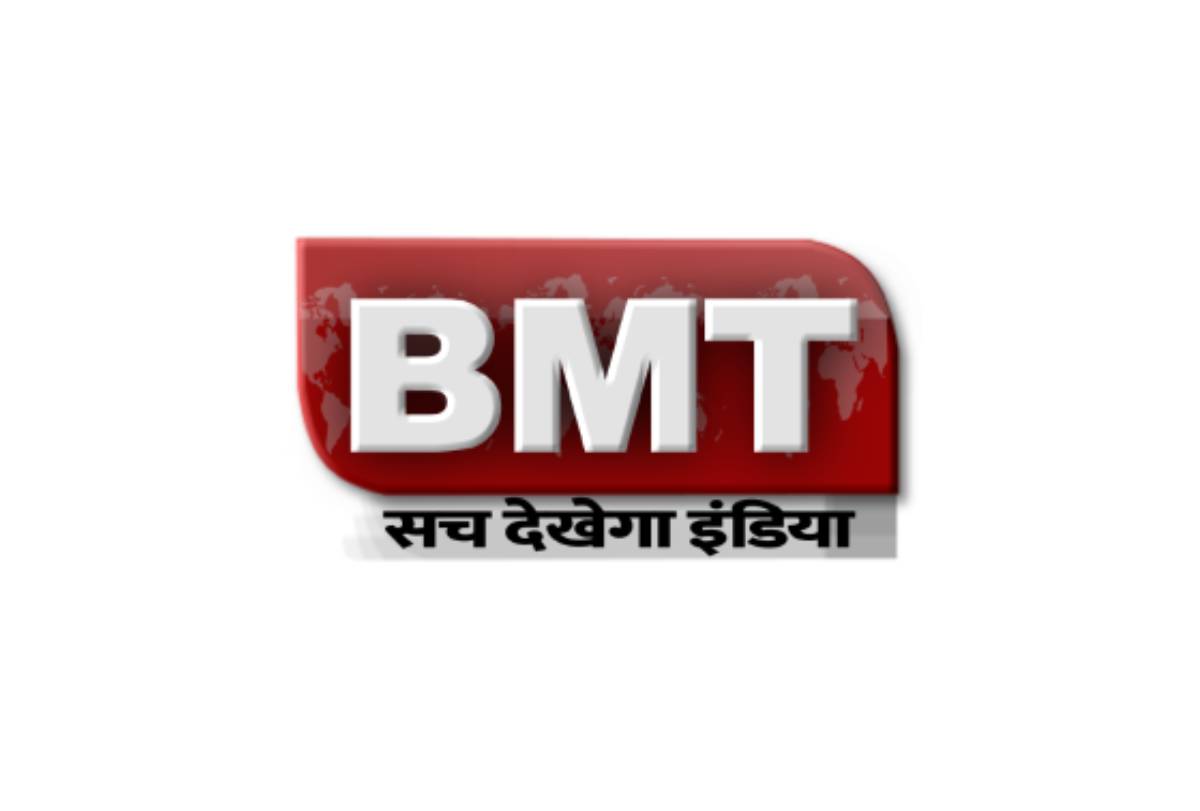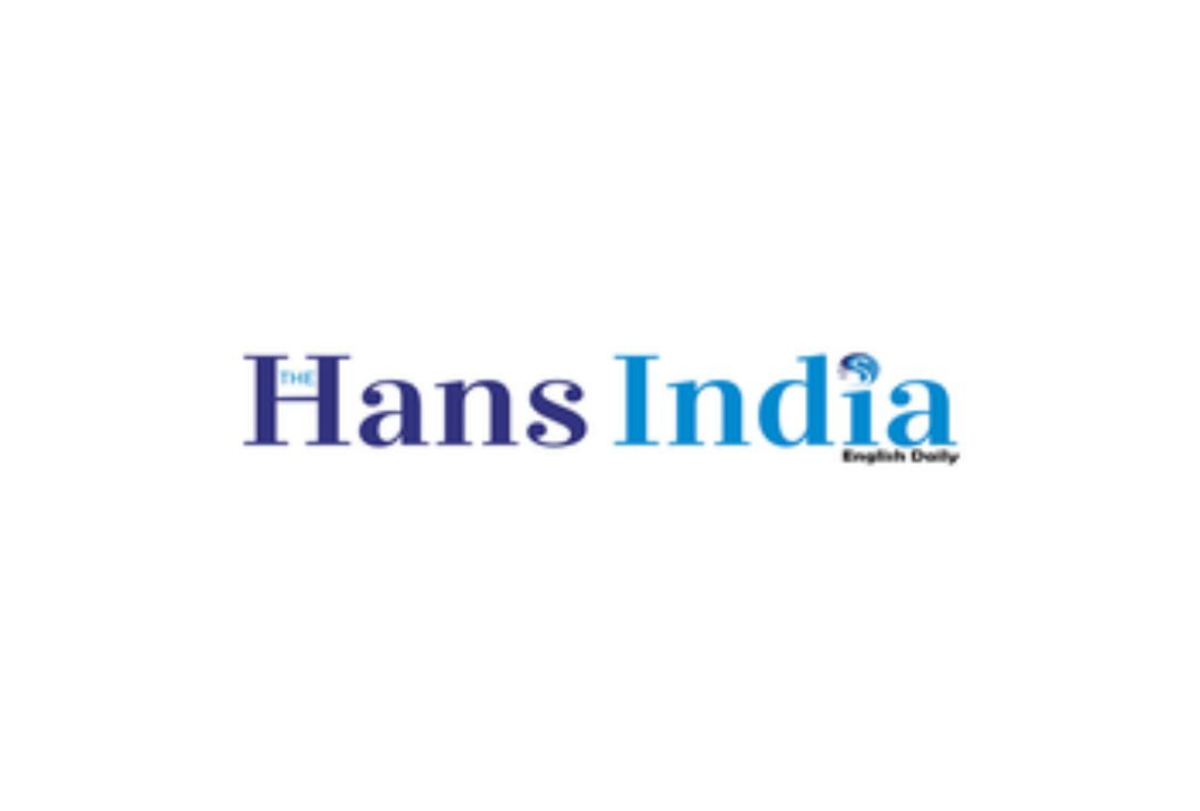Transforming Rural India Foundation (TRIF) and Global Opportunity Youth Network (GOYN) in partnership with “Work4Progress” led by Development Alternatives, and “Yuwaah” – Generation Unlimited India at UNICEF; and supported by Ministry of Rural Development, Ministry of Youth Affairs, Ministry of Skill Development and Entrepreneurship, Small Industries Development Bank of India (SIDBI) and PricewaterhouseCoopers (PwC) recently hosted a “National Conference with call-out on creating large scale place-based economic opportunities for youth in India” that took place in India Habitat Centre, New Delhi on 7th February 2023. The conference was attended by over 50 stakeholders like senior government officials, international experts, thought leaders, practitioners, funders and Youth. The stakeholders shared insights and learnings from global programs and deliberated and co-created contours for a scalable place-based economic opportunity model for India’s youth.
Mr. Praveen S Pardeshi, Member-Capacity Building Commission, GoI in his key-note address stated that “India’s biggest comparative advantage is around abundant workforce and we have a challenge of jobless growth. We need to look at policies and programs that are increasing the cost of formality and causing this jobless growth. We need to learn from global best practices like German vocational skilling model”. He also stressed on the need for involving youth in decision making and creating mechanisms for working with policy makers and elected representatives to bring about policy shifts looking at long term goals”.

Mr. Shombi Sharp, United Nations Resident Coordinator in India
Building on that, Mr. Shombi Sharp, United Nations Resident Coordinator in India said “India has the world’s largest youth population and 50% of Global SDG targets are with India. There is onus on us to unpack the demographic dividend now and India’s success will lead to the world’s success. However, India’s ability to drive growth will also be dependent on women participating in the labour force. Two exciting leapfrog opportunities for India will be around the green and digital economy”.
Further discussions in the Future of work sessions deliberated on creating groundswell of demand-supply match, expanding sub-scale pilots to respond to the rapidly growing cohort of working age rural youth. Jamie McAuliffe, Founding Director-The Aspen Institute (GOYN) explained “We should look at flipping the power dynamics by giving the power to local stakeholders especially youth to bring about change in true sense”.
The next session on State of Employability & Entrepreneurship focused on ideating a framework for workforce in both formal and informal sectors to access the available economic opportunities. Mr. Atul Tiwari, Secretary, MSDE talked about the latest budget on how it is centred around youth, job creation and livelihood and stated that “Skilling is one parameter which is common across all sectors. Skilling, reskilling and upskilling would be areas of interest for MSDE in the coming years”

Dhuwarakha Sriram, Chief of Generation Unlimited (YuWaah) at UNICEF
The deliberations in the third session on Youth Aspirations and Entrepreneurship were centred around creating a framework for Mass Flourishing in India. Models around rural, urban and green entrepreneurship were also discussed. Dhuwarakha Sriram, Chief of Generation Unlimited (YuWaah) at UNICEF said “Entrepreneurship is a journey, it needs support from skilling to mentorship to career guidance and so on. The collective power of partnership can take up this challenge together and be a part of this journey.”
The last session on Whole of Economy & place-based approach strategy focused on models for place based systemic engagement for rural youth and deliberated on an implementation framework for achieving saturation using the place-based saturation approach model. Mr. Siva Subramanian Ramann, CMD, SIDBI stressed on the need for cheap credit to be made available to rural youth. He commented that “The ability to give unsecured loans helps the youth to take up entrepreneurial activities”.
The overall message from the conference was the need for creating a mass-scale and place-based economic opportunities for youth in the country, especially rural youth. This will require an integrated and convergent action among several government programs around employability and entrepreneurship and bringing in best practices from global solutions. Further it also emerged from the workshop that a mass-scale economic opportunity program for rural youth can be best attended using the district as a unit of change. Integrated efforts at the district level will result in place-based saturation and targeted action to address gaps in labour supply, creation of local demand, and improve quality and quantity of employment.
Elements of this approach have been tested in partnership with Global Opportunity Youth Network (GOYN) and Work4Progress (SAMUDYAM) within the scope of existing government programmes of Rural Development and other programs of Government of India. The event concluded with an announcement for replicating the whole of government, place-based, collaborative model in 15 districts across the states of Madhya Pradesh, Chhattisgarh, Jharkhand and Uttar Pradesh.





